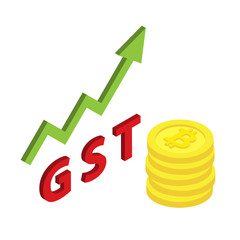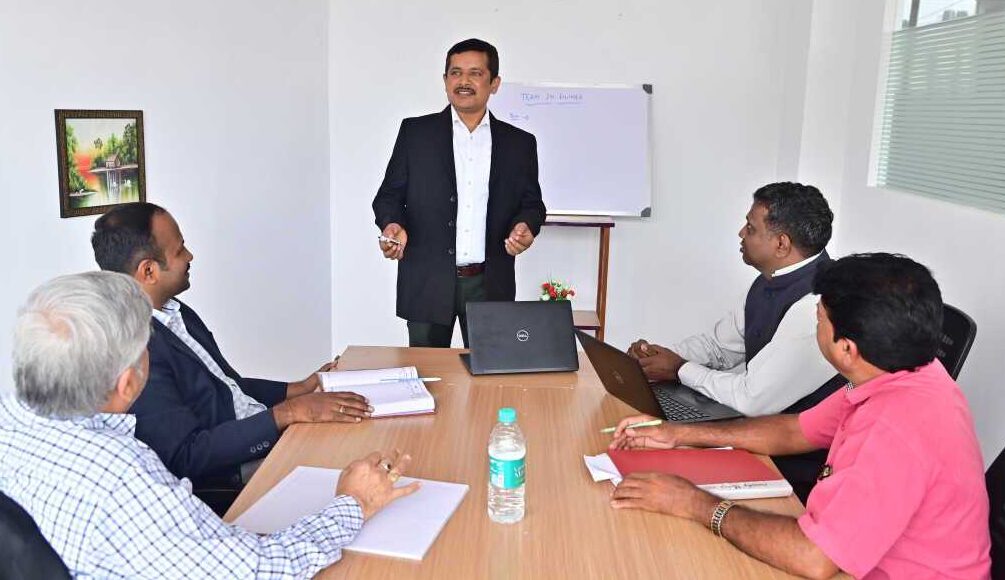GST Act 2013


Gst Act 2013
The Goods and Services Tax (GST) Act of 2013 can be defined as an indirect tax system that enables your company to levy and collect taxes on the supply of goods or services.
GST has successfully replaced previous taxes such as the Sales Act, Value Added Tax (VAT), Octroi, and others, resulting in a unified tax structure with consistent rates throughout India.
The implementation of GST has introduced a more transparent and efficient compliance framework. The simplified tax structure and streamlined processes have significantly eased the burden on businesses, making it easier for them to adhere to the law.
The GST Act, 2017, has come into force with effect from 1st July 2017. it has replaced the earlier VAT, Sales-tax, service tax, excise duty etc. Gst is an Indirect tax shared with States based on the final consumption basis.
Types of GST in India and its applicability
For the Government’s revenue-sharing purpose among the states, it has been grouped into 4.
For within the State business, called as – SGST
From 1 State to another State business is been classified – as CGST
From one State to another State there 50% grouped as– IGST
Business with State to Union Territory GST is called –UTGST

Gst Registration applicability in India.
Below are the business are must register their business under GST Act.
- Businesses under the Service category of Turnover Rs.20Lac and above must register
- Business under Trading, Manufacturing Turnover Rs.40Lac and above must Register
- Businesses doing one State to another State.
- A voluntary basis can Register the GST.
GSTIN is a 15-digit code or number, provided by the GST department for those who applied for GST Registration to carry their business.
The GSTIN is the combination of Business PAN number along with prefix of State code like 29 for Karnataka and then suffix with 3 digit alpha-numeric.
Any business that wishes to make GST invoicing must have the GSTIN and quote the GSTIN in every billing, invoices, etc.
- Process and Documents required for GST Registration in Bangalore.
- Basic KYC documents of the Proprieotr of Partner or Director
- Firm or Company Registration Certificate
- Business place Rent Agreement and Utility bill
As the Business demands GST registration and GSTIN, you must get the GST Registration number from the Local GST office by providing the below documents.
- Proprietor / Directors Pan, Aadhar, Photo, Email, and mobile number.
- Office place, Rent Agreement, Electric, and BBMP Tax paid receipt.
- Business activities and the Bank details
After keeping the above details, next is GST Registration with the GST system.
- Visit the GST website Gst.gov.in and click on Register now button for new registration
- Enter the Pan holder details like Pan no, and name in full to generate the TRN
- Login through TRN and provide the GST details as per explained in the first stage
- Do the GST authentication via Aadar to get your GSTIN within 7 days.
All the given details and documents will be verified by the GST office and then approved by the GST office.
- Maintain the proper books of accounts on the Purchases, Sales, Payments, Receipts, etc.
- Update to GST system for any Change in Address, authorized person, business details, etc within 30 days of the changes.
- Issue the GST Invoice on the Sales made with proper continuous numbering.
- Raise an e-way bill for goods worth Rs.50,000 and above
- File the GST returns on time
- Reconcile the GST purchases with the 2A report
- Make the GST complaint calendar to keep the schedule up to date.
Importance of Gst Filing in Bangalore
Every Registered GST person, must file their Monthly and Quarterly GST returns within the due dates. Mainly there are 2 returns in the GST system.- For Invoice-wise upload, GSTR -1
- For Payment of GST, its Through GSTR-3B
Delay in GST charges Gst late fee
As per the GST rules, the Monthly or Quarterly return must be filed as per the due date issued. The Delay or late filing attracts a late fee on the daily basis. The late fee also invites the GST officer to call for the inquiry and block your GST account. At present, the late fee on GST filing is Rs.100 per day.GST Update Must note.
The GST council, which has comprised of all the State’s Government’s finance ministries has the power to make the GST rules, Regulations on the Gst Rate, exemptions, filing guidelines etc. The recent changes on the GOM on GST are- GST attracts on the packed labeled non-branded food product at 5%
- GST on the hotel Rooms which are earlier exempted upto Rs.1000, attracts 12%
- GST on the Hospital rooms for more then RS.5000 per day attracts GST.
- GST provided to add the additional Tradename under one legal Name.
Getting Business registered and then apply for GST is the process.
This is because you wont get the GST, as the GST to be applied seperately post your business comes into reality.
Your can get the promt GST advisory services and GST related service from us. The team GST makes your GST as a simple. use Prakasha & Co Legal experts to help you complete it. Get in touch with Today for your GST related services.
GST compliance is important for businesses because it helps ensure that they are paying the correct amount of tax on their goods and services. Failure to comply with GST laws and regulations can result in penalties, fines, and other legal consequences.
In addition to avoiding legal problems, GST compliance can also help businesses operate more efficiently and effectively. By understanding and following GST rules and regulations, businesses can reduce the risk of errors and mistakes, which can lead to improved financial performance and increased customer satisfaction.
GST compliance is also important for businesses because it helps level the playing field for all companies operating in a particular market. By ensuring that all businesses are paying the correct amount of tax, GST helps create a more fair and competitive business environment.
A GST (Goods and Services Tax) consultant is a professional who helps businesses understand and comply with GST laws and regulations. They can assist with a range of GST-related tasks, including registering for GST, filing GST returns, and understanding GST rules and regulations.
A CS (Company Secretary) is a professional who assists companies with compliance and governance matters. They can help with a variety of tasks related to company law, including helping companies register with the appropriate authorities, preparing and filing financial statements and other documents, and advising on corporate governance matters.
Both GST consultants and CS professionals can help businesses understand and comply with GST laws and regulations, as well as assist with the preparation and filing of GST returns. They can also provide guidance on other compliance matters and help businesses navigate the complexities of GST rules and regulations.
The GSTIN system: Simplifying India’s tax system
The Goods and Services Tax Act of 2017 is consolidation of all complex indirect taxes in India, creating a unified and streamlined tax system. This landmark change was a significant boost for businesses, promoting ease of operation and fostering transparency across the nation’s economy.
GST Benefits with Prakasha & Co
To fully reach the advantages of the GST Act, businesses need expert guidance. This is where Prakasha & Co, seasoned GST advisors in Bangalore, excel. Their services are tailored to help businesses in several ways:
- Understanding GST’s Impact: Prakasha & Co systematically analyze the implications of GST for your specific business model, ensuring a clear understanding of its applicability.
- Maximizing Cash Flow and Compliance: our Gst expertise lies in developing optimized tax plans and structures that maximize cash flow for your business while maintaining full GST compliance.
- A Legacy of Indirect Tax Expertise: Prakasha & Co’s decades of indirect tax experience, including their involvement in shaping GST’s framework, give you an unparalleled edge. We have conducted numerous seminars and published insightful blogs, offering a wealth of knowledge to benefit your business.
By engage for GST compliance with Prakasha & Co, your businesses can confidently navigate the GST compliances, enhancing efficiency, saving costs, and achieving long-term growth of your business objectives.
Not looking for GST registration? Click below to find other forms of entity registration
- Setting up of Proprietary Concern in Bangalore
- Setting up of Proprietary Concern in Bangalore
- One Person Company or OPC Registration in Bangalore
- Partnership Firms Registration in Bangalore
- Limited Liability Partnerships Registration or LLP Registration in Bangalore
- Subsidiary Company Registration in Bangalore
- Setup Branch / Liaison Office in India





